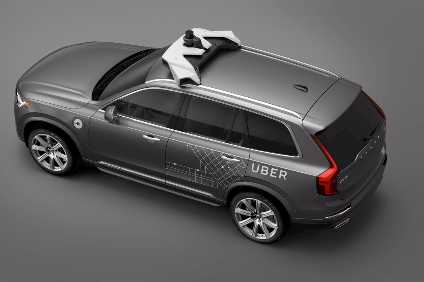As new business models and new entrants to the personal mobility space gather momentum, automakers are increasingly collaborating with firms outside of the auto industry’s established participants. Legal adviser Russell Edson cautions that they should be wary of changing power relationships amid the rising importance of intellectual property (IP) in a dynamic new business landscape.
In the dynamic world of automotive industry innovation, intellectual property rights are playing an increasingly important role in defining the future market leaders.
The collaborative partnership between Volvo and Uber is indicative of the current power shift taking place in the automotive industry as online and software-focussed companies seek to work alongside traditional vehicle manufacturers (VMs). In doing so, they are hoping to take control and drive innovation in the sector. With both parties vying to be the future market leader in the fast-changing landscape of the automotive sector, different types of intellectual property (IP) are helping to establish the balance of power in these emerging relationships.
The rise in the number of tech-led collaborations has been driven by a number of factors. In recent years, growing consumer expectation of graphical user interfaces (GUIs) has led to software-based interfaces replacing traditional dashboard controls. In addition, many cars now boast data connections and intelligent software systems providing traffic information, route planning systems and news updates.
Of course, there is also a strong focus on disruptive innovation in the sector – specifically in relation to the design and development of autonomous vehicles. As web-based businesses such as Uber seek to gain a foothold in this promising emerging market, they have an opportunity to take ownership of customer relationships in the personal transport sector for the first time. In doing so, they may seek to position the VM as a mere supplier of the hardware through which on-demand transport services are delivered to customers. This realisation is driving many VMs to collaborate far more widely beyond the usual automotive supply chain.
The partnership between Volvo and Uber is an example for others to follow. Uber has a widely-publicised, long-term intention to deliver driverless motoring services and in order to do so the business must keep up with current innovations and drive price competition. Similarly, Volvo has realised that forging partnerships is vital, as traditional VMs may not have the in-house capability to provide the instant, ‘social’ and connected user experience demanded by an increasing number of today’s consumers. More and more collaborative partnerships are emerging, involving a wide range of VMs, traditional Tier 1 and 2 suppliers and online innovators, seeking to bring together an enhanced in-car experience and increased user connectivity.
Any of these collaborations will require careful handling from an IP perspective. For a long time, traditional VMs have known that their IP rights exist to protect the essential core technologies required to get car owners moving, such as interiors, chassis, powertrain, braking and steering systems. However, tech-led collaborations are encouraging them to think more broadly and new players are being invited into the previously tight-knit community of VMs and component manufacturers.
UK Autodrive, a collaboration which has been set up to pioneer autonomous driving in the UK, comprises no fewer than 16 members, including competitor VMs, Jaguar Land Rover and Ford, rival universities (both Oxford and Cambridge), two city councils, university spin-outs and engineering consultancies. While all appreciate the benefits of working together, clearly it is important for each organisation to ensure their intellectual property and commercial rights are protected.
Knowing what you bring to the table as a player in such collaborations is vital. For all companies involved, a large part of this resides in any pre-existing patented technologies that are being utilised. In these, and the more direct collaborations like the Volvo-Uber project, where innovations are jointly developed, IP rights may need to be shared or cross-licensed to one another and this balance of input to the innovation process can in turn can help to determine which party has the upper hand in the relationship.
Taking steps to protect innovation can be more complex in collaborations where more than one party has technical input. An agreement must be established at the start of the relationship to determine who can use any jointly-developed IP, and in which geographical markets and industry sectors each party can use it. Once IP ownership and usage rights are secured, these rights could be transferred or licensed to third-parties in the future.
While many larger VMs may have a dedicated IP department, smaller tech-led businesses may lack experience in this field. These businesses often need funding, which VMs can provide, although independent IP advice for the smaller entity is also important. Forming a well-managed collaboration that effectively manages IP ownership can allow VMs to provide the launch pad needed for these smaller innovative companies; helping to drive innovation to the benefit of both parties.
Russell Edson is a patent attorney at intellectual property firm Withers & Rogers.







